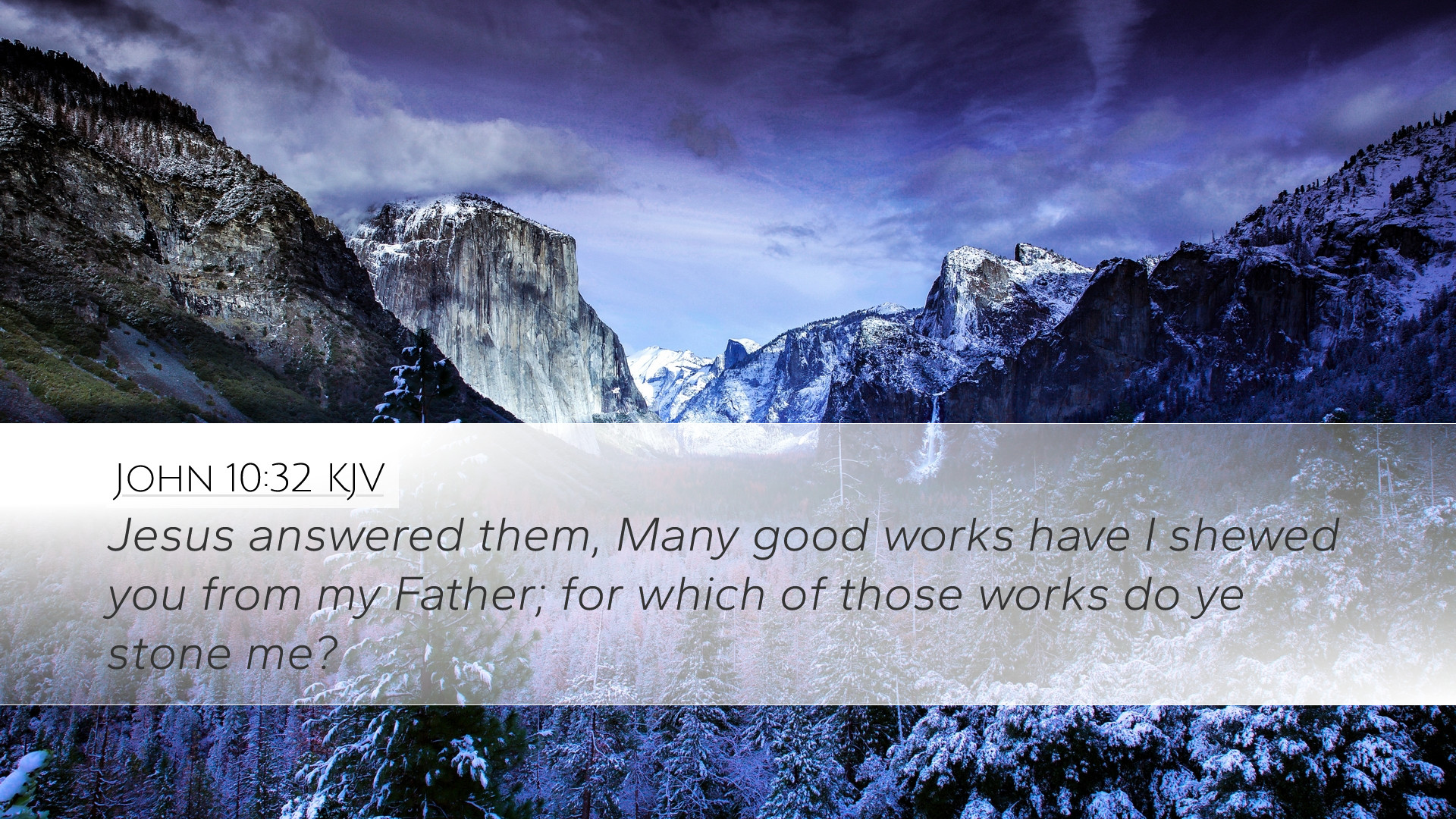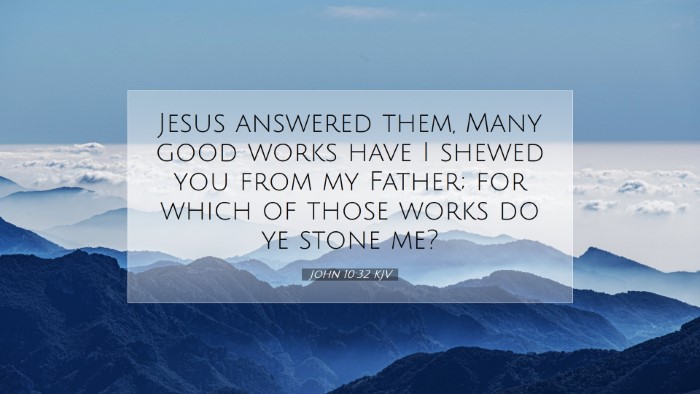Commentary on John 10:32
John 10:32 (KJV): "Jesus answered them, Many good works have I shewed you from my Father; for which of those works do ye stone me?"
Contextual Background
The tenth chapter of the Gospel of John captures a critical moment in Jesus' ministry, where the Jewish leaders' animosity towards Him becomes palpable. Following the miracle of raising Lazarus (John 11:1-44), Jesus' popularity surged, yet so did the hostility of the Pharisees and Sadducees, who felt threatened by His authority and influence.
Analysis of the Verse
This verse serves as part of Jesus's response to the accusations and hostility faced from the Jewish leaders. His articulation of "good works" emphasizes the miraculous deeds and teachings He performed, drawing attention to the divine source of His authority and mission.
Insights from Commentators
Matthew Henry
Matthew Henry notes that Jesus’ response demonstrates the irrationality of the Jewish leaders' reaction. Instead of recognizing the goodness and divine nature of His works, they sought to harm Him. Henry emphasizes that Jesus’ "good works" are irrefutable evidence of His divine commission. This highlights a recurring theme: the rejection of truth by those who are blinded by prejudice and legalism.
Albert Barnes
Albert Barnes points out that the very "good works" Jesus refers to were manifestations of His compassion, miracles, and teachings that depicted the character of God in human form. Barnes underscores that the Jewish leaders’ attempts to stone Jesus reveal their inability to see the truth due to their hardened hearts. He further implies that this incident illustrates a broader truth about human nature: when people confront truths that challenge their preconceptions, they often resort to violence rather than understanding.
Adam Clarke
Adam Clarke elaborates on the phrase "Many good works have I shewed you" by analyzing the evidence of Christ's ministry, citing specific miracles and teachings aimed at reflecting God's love and mercy. Clarke suggests that Jesus aimed to provoke thought in His accusers, asking them to consider which specific act of benevolence warranted such a severe reaction. This rhetorical strategy serves to expose the absurdity of their hostility while inviting them to reconsider their stance based on His demonstrated goodness.
Theological Implications
John 10:32 encapsulates a profound theological truth: the manifestation of God’s goodness can be met with suspicion and hostility. Jesus’ challenging question to the Jewish leaders serves as a reminder that divine actions sometimes provoke the very hostility they are intended to cure. This situation reveals an eternal struggle between light and darkness, faith and doubt, as well as the transformative power of Christ’s deeds in the face of skepticism.
Application for Contemporary Believers
This passage urges contemporary believers to reflect on how they assess the works of God in their lives and the world around them. Are we recognizing and affirming the goodness demonstrated through Christ and His followers, or are we allowing bias and preconceived notions to cloud our judgment? Moreover, the incident serves as a call to engage with those who oppose us, employing grace and evidence of good works as our response rather than anger or hostility.
- Be a witness: Demonstrate good works in our lives that point to Christ.
- Engage thoughtfully: When faced with opposition or skepticism, respond with clarity and love.
- Reflect regularly: Consider the ways God has shown goodness in our circumstances and share those testimonies to encourage others.
Conclusion
John 10:32 is more than a historical moment; it embodies the eternal truths surrounding God's revelation, human response, and the complexity of faith. By considering the insights from respected commentators, as well as the theological and practical implications, we can appreciate the richness of this passage. It challenges us to look deeper into our own responses to God's work in the world and to reflect Christ's love and goodness amidst adversity.


